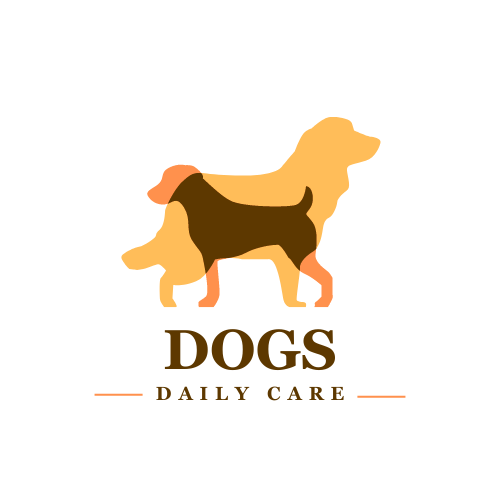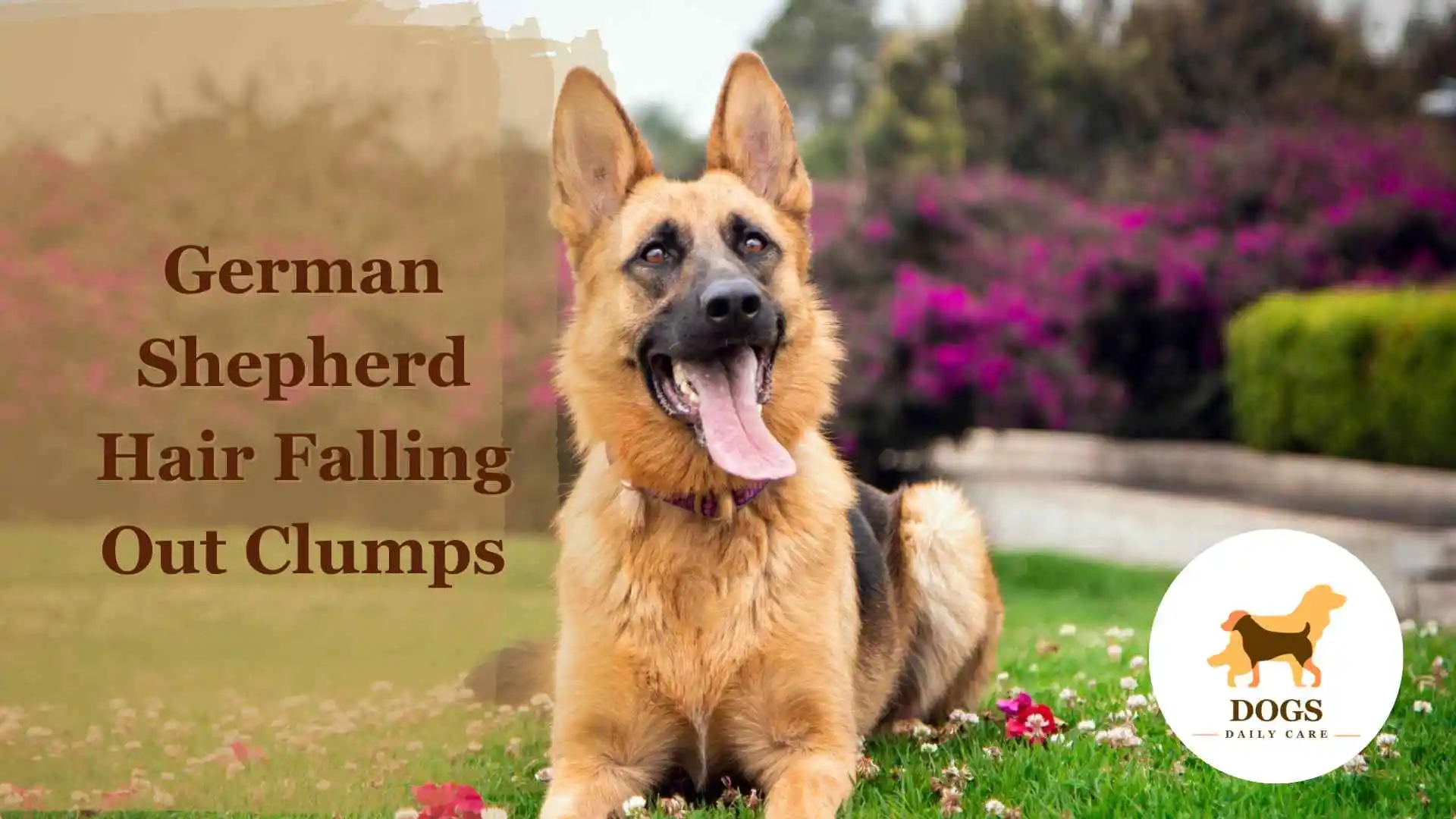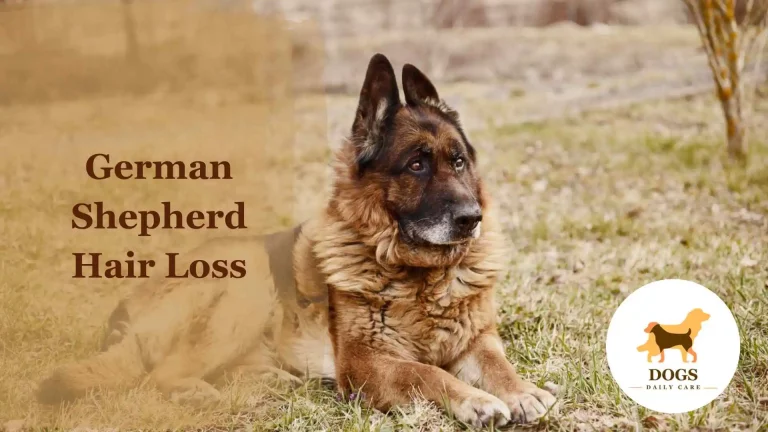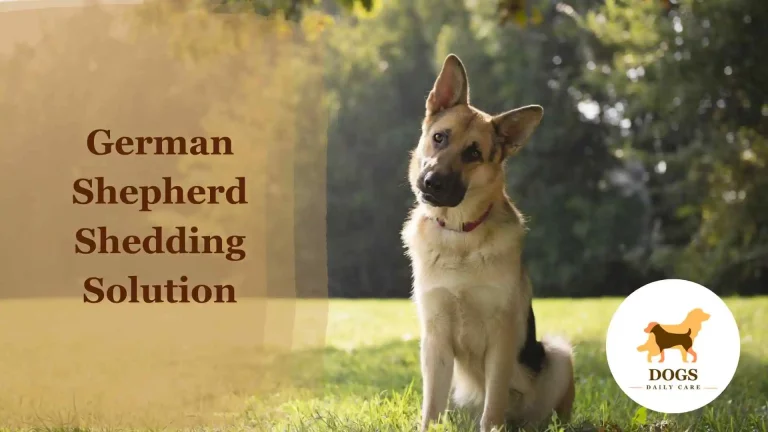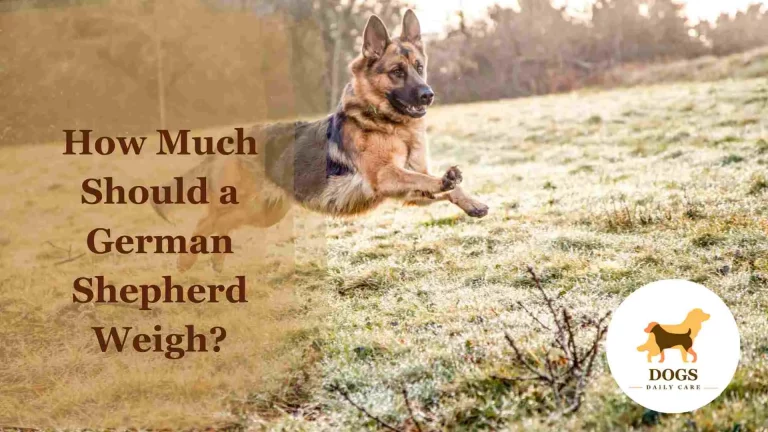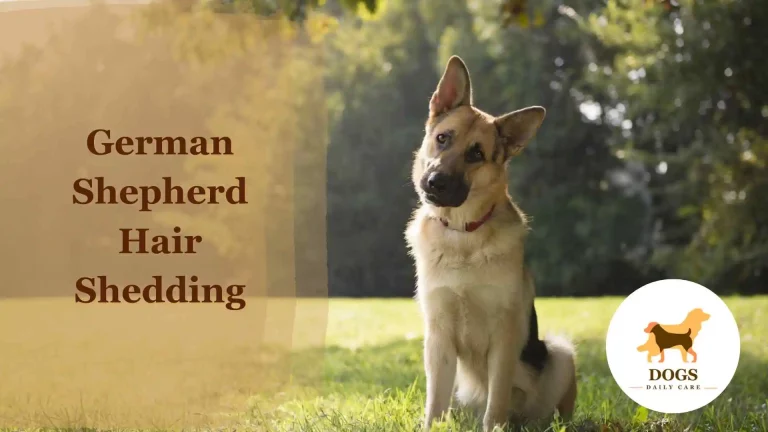German Shepherd Hair Falling Out Clumps – What To Do!
German Shepherds are known for their loyalty, intelligence, and a luxurious coat of fur. However, it’s not uncommon for these faithful companions to experience hair loss, which could happen in patches or clumps. When it’s more than just the usual shedding, it’s a matter of concern for every pet owner. Recognizing abnormal hair loss and understanding its underlying causes is the first step toward ensuring your furry friend stays healthy and comfortable.
Hair loss in clumps can be indicative of various underlying issues ranging from allergies, parasitic infections to hormonal imbalances. While shedding is a normal process, excessive hair loss, especially in clumps, may signify a health issue that needs addressing. Being able to differentiate between normal shedding and potential health problems is crucial. This knowledge not only helps in early detection but also in administering the right treatment, ensuring a quick recovery for your German Shepherd.
In this guide, we’ll delve deeper into the common causes of hair loss in German Shepherds, how to identify abnormal hair loss, and the steps you should take to rectify this problem. Through a thorough understanding and a proactive approach, you can ensure that your German Shepherd remains healthy, happy, and full of life. So, whether you are a new German Shepherd parent or a seasoned one, this guide will equip you with the necessary knowledge to tackle hair loss issues in your furry companion.
Common Causes of Hair Loss in German Shepherds
The sight of your German Shepherd losing hair in clumps can be distressing. However, understanding the common causes can equip you with the knowledge needed to address the issue effectively. Here are some of the prevalent factors that lead to hair loss in German Shepherds:
Parasitic Infections:
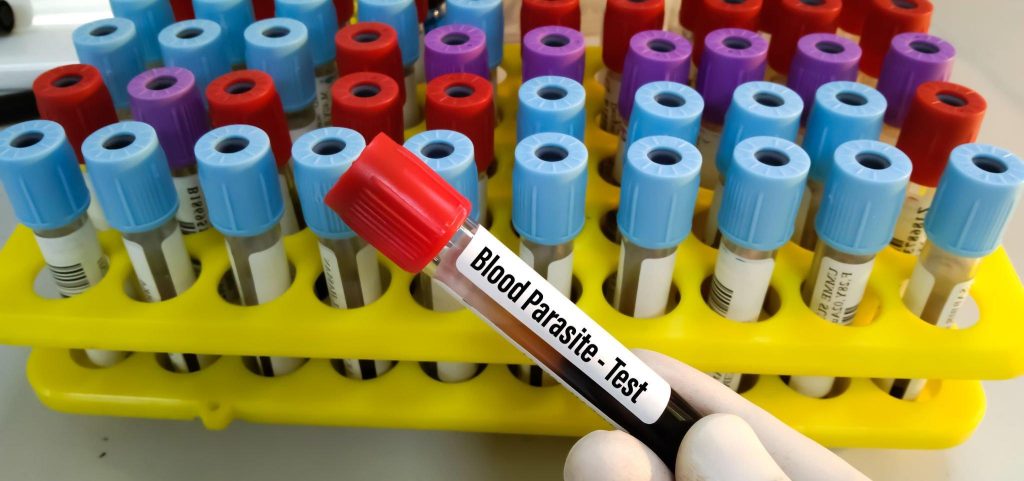
- Fleas, ticks, and mites are common external parasites that can cause severe itching and consequent hair loss in German Shepherds.
- The incessant scratching and biting can lead to hair falling out, often in clumps, making parasitic infections a primary concern for pet owners.
Allergies:
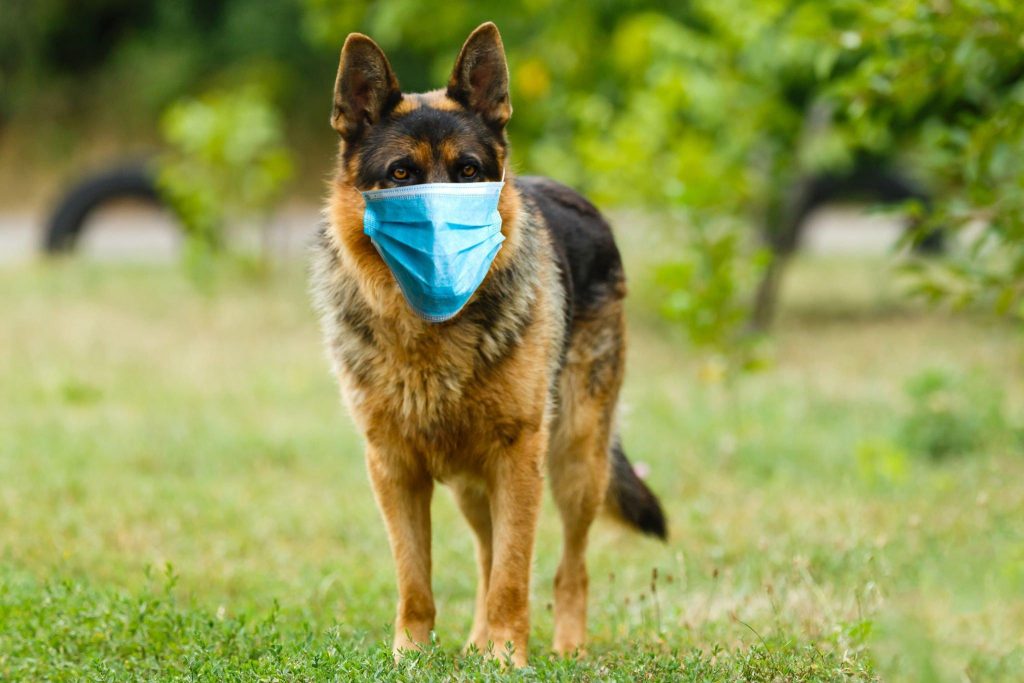
- Allergies, whether to food or environmental factors like pollen, mold, or dust mites, can cause skin irritation and hair loss.
- Identifying and eliminating the allergen source can significantly help in reducing the hair loss and improving the skin condition of your German Shepherd.
Hormonal Imbalances:
- Conditions like Hypothyroidism or Cushing’s Disease can lead to hormonal imbalances which, in turn, can cause hair loss in German Shepherds.
- Hormonal issues often require a vet’s intervention for accurate diagnosis and appropriate treatment.
Dermatitis and Other Skin Conditions:
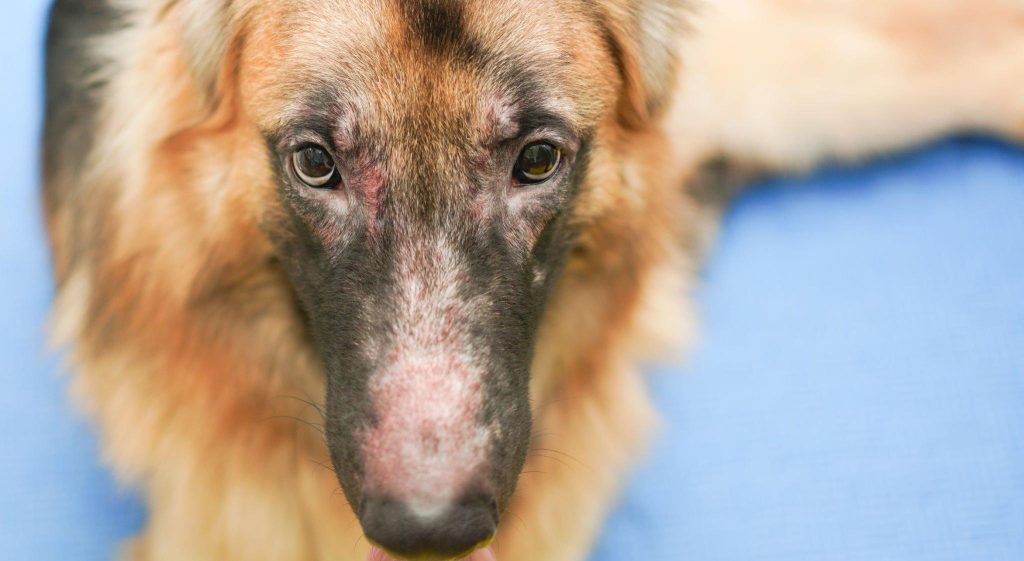
- Various skin conditions such as dermatitis can cause skin irritation, which may result in hair loss.
- A proper skincare regimen, prescribed by a vet, can go a long way in alleviating skin issues and promoting hair regrowth.
Genetic Factors:

- Sometimes, genetic factors can predispose German Shepherds to certain skin conditions and hair loss issues.
- Understanding the genetic lineage of your German Shepherd can provide insight into any predisposed conditions and prepare you for potential hair loss issues.
Nutritional Deficiencies:
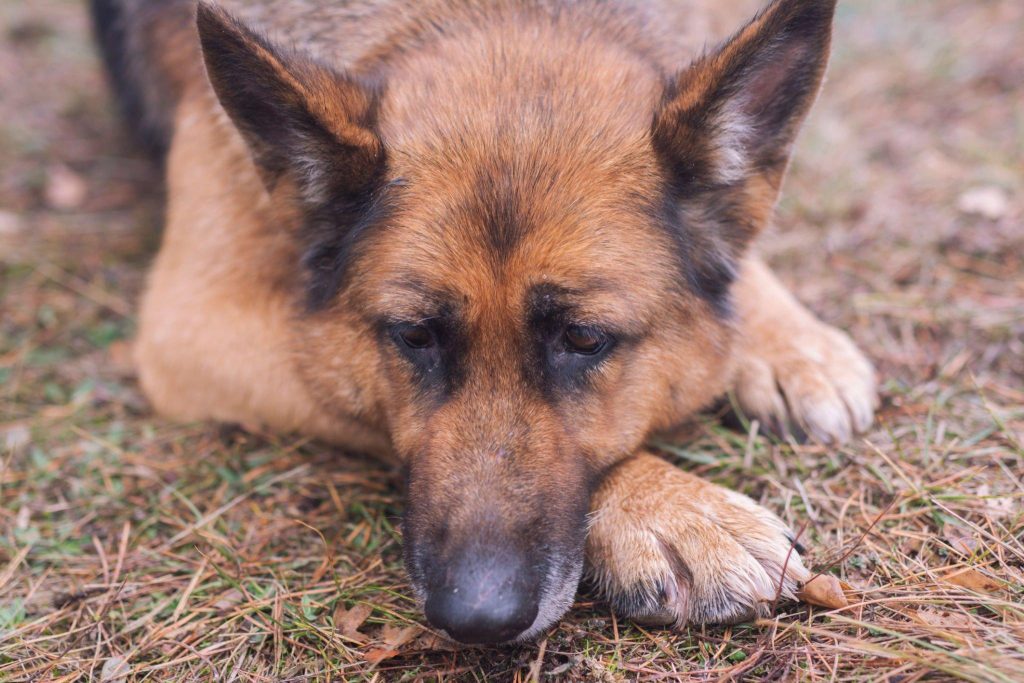
- A balanced diet is crucial for maintaining a healthy coat. Nutritional deficiencies can lead to dry, brittle hair that falls out easily.
- Ensuring your German Shepherd receives a well-balanced diet rich in essential nutrients can promote a healthy, shiny coat and minimize hair loss.
By understanding the common causes of hair loss, you can take the necessary steps to address the issue and ensure the well-being of your beloved German Shepherd. Whether it’s a minor allergy or a more serious hormonal imbalance, early detection and intervention can significantly improve the quality of life for your furry companion.
How to Identify Abnormal Hair Loss (Hair Falling Out in Clumps)
Identifying abnormal hair loss in your German Shepherd at an early stage is crucial for effective intervention and treatment. While shedding is a natural process, especially during certain seasons, a stark contrast is observed when hair loss occurs in clumps or patches. Here’s how you can differentiate between normal shedding and abnormal hair loss:
Extent and Pattern of Hair Loss:
- Normal shedding is typically uniform across the body, whereas abnormal hair loss often occurs in clumps or patches.
- Look for bald spots or areas where the skin appears red, irritated, or inflamed.
Associated Symptoms:
- Abnormal hair loss in German Shepherds is often accompanied by other symptoms such as itching, skin irritation, or a foul odor.
- Pay attention to behavioral changes like increased scratching, biting, or licking of the affected areas.
Changes in Skin Condition:
- The skin beneath the fur should be smooth and free of scales, bumps, or redness.
- Examine your German Shepherd’s skin closely for any signs of infections, rashes, or inflammations which can be associated with abnormal hair loss.
Duration and Consistency:
- While shedding phases come and go, persistent hair loss or bald spots that don’t seem to heal are cause for concern.
- Monitor the consistency of the hair loss over time to identify if it’s a normal shedding phase or a more serious issue.
Response to Over-the-Counter Treatments:
- Sometimes, mild skin irritations causing hair loss may respond well to over-the-counter treatments.
- If there’s no improvement or the condition worsens, it’s time to consult with a vet.
Understanding the signs of abnormal hair loss and acting promptly can make a significant difference in managing the condition and ensuring the health and comfort of your German Shepherd. Routine checks and grooming sessions are excellent opportunities to inspect your pet’s skin and coat condition. And remember, when in doubt, it’s always best to consult with a veterinarian to get a professional opinion on the health of your German Shepherd.
Visiting the Vet
Taking your German Shepherd to the vet is a prudent step when you notice abnormal hair loss. A professional examination can pinpoint the exact cause and suggest a tailored treatment plan. Here’s what you can expect during a visit to the vet for hair loss concerns:
Initial Examination:
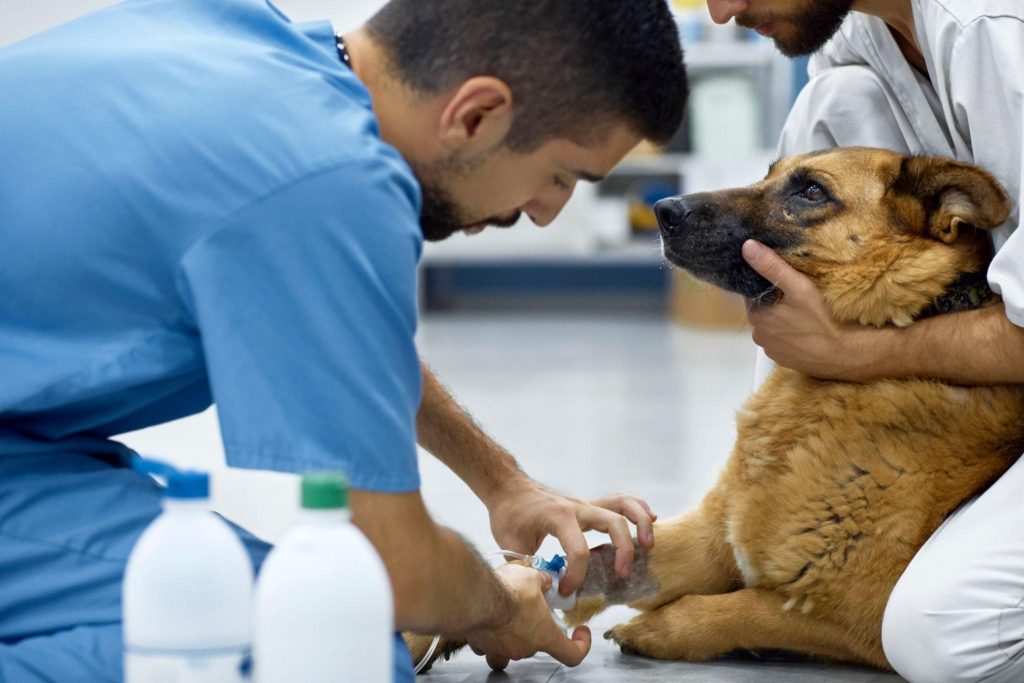
- The vet will perform a thorough physical examination of your German Shepherd, focusing on the areas where hair loss is prominent.
- They may ask about the onset, duration, and any accompanying symptoms to get a comprehensive understanding of the issue.
Skin Scraping and Other Tests:
- Diagnostic tests like skin scraping can help identify parasitic infections or other skin conditions.
- Blood tests may also be conducted to check for hormonal imbalances or other systemic issues that might be contributing to the hair loss.
Allergy Testing:
- If allergies are suspected, the vet might conduct allergy tests to identify the allergens causing the reaction.
- Knowing the specific allergens can help in formulating a management and treatment plan.
Dietary Assessment:
- The vet may inquire about your German Shepherd’s diet to ensure it’s balanced and not contributing to the hair loss.
- Nutritional adjustments could be recommended to promote a healthier coat and skin.
Treatment Recommendations:
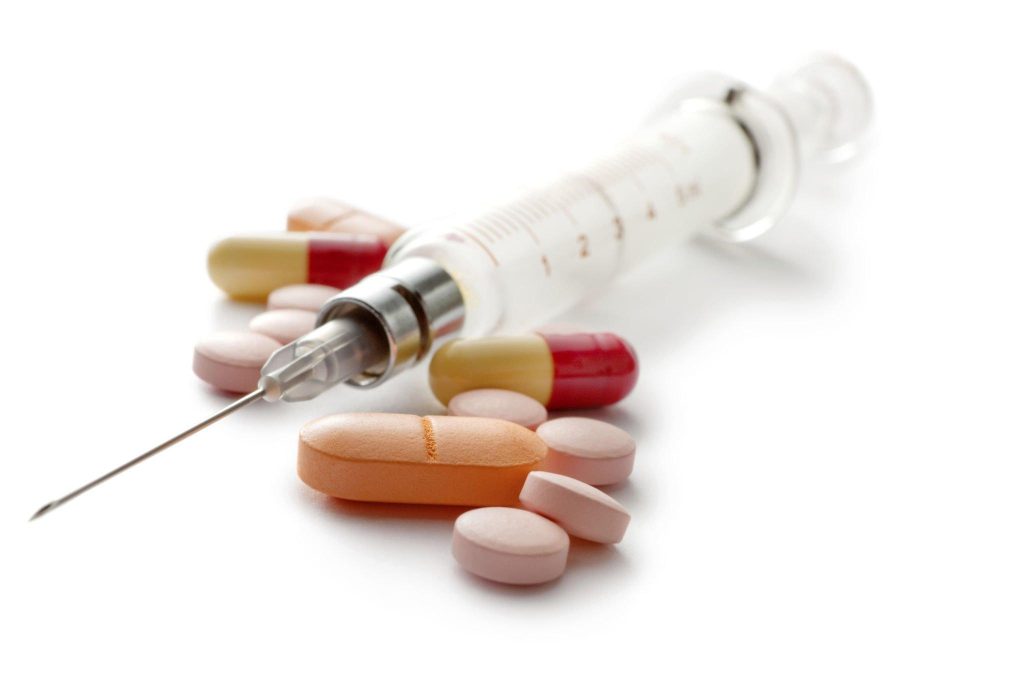
- Based on the findings, the vet will recommend a treatment plan which may include medications, topical treatments, or dietary changes.
- Follow-up visits may be scheduled to monitor the progress and make any necessary adjustments to the treatment plan.
Home Care Guidance:
- Your vet will provide instructions on how to care for your German Shepherd at home to expedite the healing process.
- This might include a grooming regimen, topical treatments, or special dietary considerations.
Taking prompt action by consulting a vet ensures the well-being of your German Shepherd and can significantly improve the condition causing hair loss. Equipped with a professional diagnosis and a tailored treatment plan, you can help your furry companion regain a lush, healthy coat and enjoy a comfortable, happy life.
Treatment Options For Hair Falling Out in Clumps
Addressing hair loss in your German Shepherd begins with understanding the underlying cause. Once diagnosed, a variety of treatment options can be explored to restore your furry companion’s lush coat and alleviate any discomfort. Here’s a closer look at some of the treatment avenues available:
Medications:
- Depending on the diagnosis, your vet may prescribe medications to treat underlying conditions like parasitic infections or hormonal imbalances.
- Common medications include antiparasitic drugs, antibiotics for bacterial infections, or hormonal therapy for conditions like hypothyroidism.
Topical Treatments:
- Topical solutions like medicated shampoos, creams, and ointments can provide relief from itching and irritation, promoting a healthier skin and coat.
- Regular use as directed by your vet can help manage symptoms and prevent further hair loss.
Specialized Shampoos:
- Specialized shampoos are formulated to treat specific skin conditions. For instance, antifungal shampoos can help manage yeast infections on the skin.
- They can be an integral part of the treatment regimen, assisting in the management of skin conditions contributing to hair loss.
Dietary Changes and Supplements:
- A balanced diet rich in essential nutrients like omega-3 fatty acids can promote a healthy coat and skin.
- Supplements such as biotin or zinc may also be recommended by your vet to address nutritional deficiencies causing hair loss.
Allergy Management:
- If allergies are the culprit, identifying and eliminating allergens from your German Shepherd’s environment or diet is crucial.
- Hypoallergenic diets or allergy medications may also be recommended to manage symptoms.
Alternative Therapies:
- In some cases, alternative therapies like acupuncture or herbal medicine may provide relief.
- Discuss with your vet if alternative therapies could be a suitable adjunct to conventional treatment.
Each treatment option aims at addressing the underlying cause of hair loss, providing relief and promoting a healthy regrowth of hair. It’s imperative to follow your vet’s guidance to ensure the treatment plan is effective and safe for your German Shepherd. With the right approach, your loyal companion can regain a healthy, shiny coat and enjoy a comfortable, itch-free life.
Prevention and Maintenance
Prevention is always better than cure, especially when it comes to managing hair loss in your German Shepherd. Regular maintenance can significantly contribute to a healthy coat and skin, reducing the chances of hair loss over time. Here are some preventive measures and maintenance tips to ensure your furry companion stays in tip-top shape:
Regular Grooming:

- Grooming not only keeps your German Shepherd looking great but also helps in early detection of potential skin issues before they escalate.
- Use a high-quality brush to remove loose hairs and promote good circulation to the skin, reducing the chances of hair loss.
Balanced Diet:

- A well-balanced diet enriched with essential nutrients like omega-3 fatty acids, vitamins, and minerals is crucial for a healthy coat and skin.
- Consult with your vet to determine the right diet that meets the nutritional needs of your German Shepherd.
Supplements:

- Supplements like fish oil, biotin, and zinc can help in maintaining a healthy coat and skin.
- It’s advisable to discuss with your vet before introducing any supplements to your German Shepherd’s diet.
Regular Vet Check-ups:
- Routine vet visits can help in early detection and treatment of conditions that may lead to hair loss.
- Your vet can provide valuable advice on preventive care and maintenance to keep your German Shepherd healthy.
Parasite Prevention:
- Regular parasite control is vital to prevent infestations that can cause skin irritation and hair loss.
- Adhere to a regular flea and tick prevention regimen as recommended by your vet.
Maintain a Stress-free Environment:
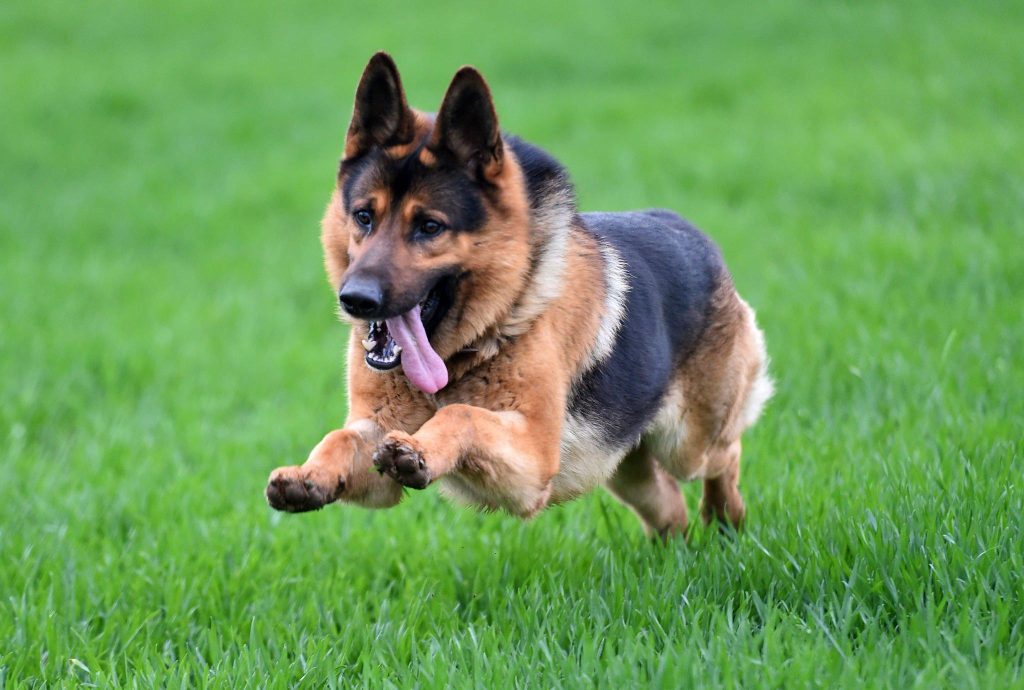
- Stress can trigger skin conditions and hair loss in German Shepherds.
- Ensure your pet has a comfortable, stress-free environment and gets plenty of exercise to stay happy and healthy.
Skin Care:
- Protect your German Shepherd’s skin by using dog-friendly shampoos and moisturizers.
- Avoid harsh chemicals that can irritate the skin and lead to hair loss.
Education and Awareness:
- Being knowledgeable about common skin conditions and staying vigilant can go a long way in prevention.
- Stay informed about the best practices for maintaining a healthy coat and skin for your German Shepherd.
Implementing a holistic approach to prevention and maintenance can significantly reduce the likelihood of hair loss in your German Shepherd. With a combination of regular grooming, a balanced diet, and routine vet check-ups, you can ensure your loyal companion remains healthy, happy, and well-groomed.
Frequently Asked Questions (FAQs)
1. Why is my German Shepherd losing hair in clumps?
Hair loss in clumps can be a sign of various underlying issues ranging from skin infections, allergies, hormonal imbalances, to parasitic infestations. A thorough examination by a veterinarian is crucial to ascertain the exact cause and initiate an appropriate treatment plan.
2. Is shedding common in German Shepherds?
Yes, shedding is common and natural for German Shepherds, especially during the shedding seasons of spring and fall. However, if you notice excessive shedding or bald patches, it’s advisable to seek veterinary advice to rule out any underlying health issues.
3. How can I prevent hair loss in my German Shepherd?
Regular grooming, a balanced diet, routine veterinary check-ups, and maintaining a stress-free environment are key in preventing hair loss. Additionally, ensure your German Shepherd is on a regular parasite prevention regimen to avoid infestations that could lead to hair loss.
4. What kind of diet can promote a healthy coat and skin?
A diet rich in essential nutrients like omega-3 fatty acids, vitamins, and minerals can promote a healthy coat and skin. Supplements such as fish oil, biotin, or zinc might also be beneficial, but it’s always best to consult with a veterinarian before making any dietary changes.
5. Are there any home remedies for hair loss in German Shepherds?
While some home remedies like coconut oil or aloe vera can provide temporary relief, it’s crucial to address the root cause of hair loss. Consulting a vet for a professional diagnosis and treatment plan is the most effective way to manage hair loss in German Shepherds.
Conclusion
Managing hair loss in your German Shepherd can initially seem daunting, but with a proactive approach and the right guidance, it’s entirely manageable. Regular grooming, a well-balanced diet, and early veterinary intervention can significantly mitigate the issue. Ensuring a stress-free environment and adhering to a regular check-up and treatment schedule with your vet can go a long way in maintaining a lush, healthy coat on your furry companion.
It’s essential to stay informed and act promptly at the first sign of abnormal hair loss to provide your German Shepherd with the best care possible.
The journey towards resolving hair loss issues begins with understanding the underlying causes and adopting an effective treatment plan. Whether it’s making dietary adjustments, following a topical treatment routine, or consulting with your vet for specialized care, each step contributes to the overall well-being of your German Shepherd.
Your effort in maintaining the health and happiness of your loyal companion will not only lead to a beautiful, shiny coat but also a comfortable and enjoyable life for your German Shepherd. Remember, a happy dog is a healthy dog, and a healthy dog makes for a happy owner.
